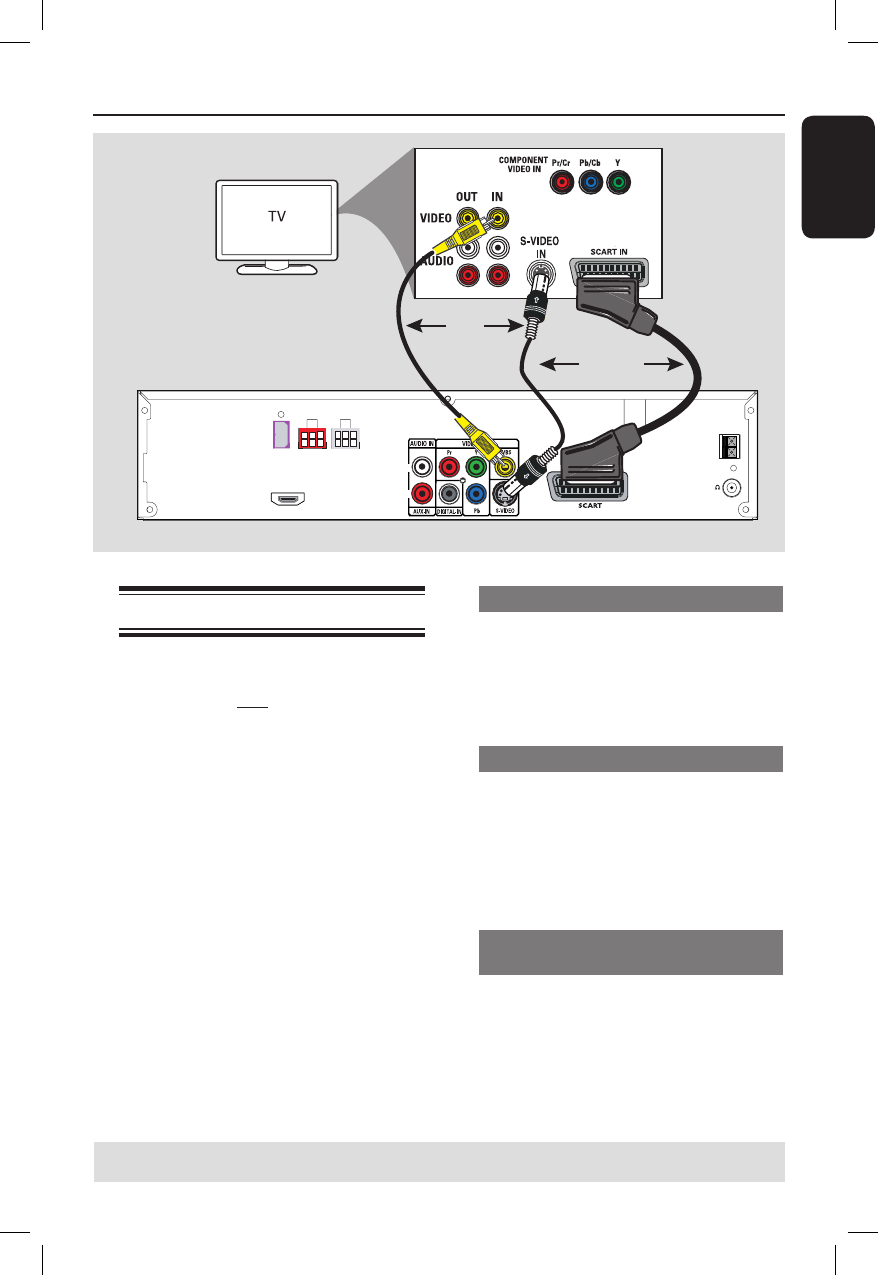
15
English
Step 3: Connecting to TV
This connection enables you to view the
playback from this DVD system. You only
need to choose one of the options
below to make the video connection.
– For a standard TV, follow option 1, 2
or 3.
– For a progressive scan TV, follow
option 4.
– For a HDMI TV, follow option 5.
IMPORTANT!
Connect the DVD system directly
to the TV.
Helpful Hint:
– If you are using the scart connection, you
can press TV on the remote control to get
the sound output from the speakers system
when watching the TV programmes.
Basic Connections (continued)
Option 1: Using the Scart socket
Use the scart cable to connect the
SCART socket on the DVD system to
the corresponding SCART input socket
on the TV.
Option 2: Using the S-Video socket
Use an S-video cable (not supplied) to
connect the S-VIDEO (Y/C) socket on
the DVD system to the S-Video input
socket (or labelled as Y/C or S-VHS) on
the TV.
Option 3: Using the Video (CVBS)
socket
Use a composite video cable (yellow -
not supplied) to connect the CVBS
socket on the DVD system to the video
input socket (or labelled as A/V In, Video
In, Composite or Baseband) on the TV.
TIPS: Before making or changing any connections, make sure that all the devices are disconnected
from the power outlet.
FM 75
MW
FM/MW ANTENNA
HDMI OUT
~
MAINS
SUB-
WOOFER
FRONT
LEFT
FRONT
RIGHT
R
L
Option 1Option 2
OR
OR
Option 3


















